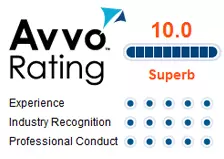The number of blood tests being conducted in Michigan has expanded manifold in recent years. In fact, in the six year period between 1994 and 2000 the number of blood tests for drugs in Michigan increased from 859 to 2346. This number has probably at least doubled again during the last nine years.
One reason this the state lab is conducting so many more blood tests is that arrests for drugged driving, called OWPD (operating with the presence of drugs) or OUID (operating under the influence of drugs) have become much more common.
As drugged driving cases become more common so increases the need for accurate drug tests. The most accurate test uses a process called mass spectrometry (MS). The Michigan state lab uses MS testing to analyze blood collected from people accused of drugged driving .
Unlike gas chromatography where separation occurs according to a relatively passive method mass spectrometry separation involves actually ripping apart the subject molecule into its component parts. The molecule’s fragments are then examined in detail.
Theory and Operation – here is an excellent video on the subject:
If you are arrested in Michigan for drugged driving it is important for you to understand that certain drugs, called “schedule one” drugs, are considered “zero tolerance.” Generally speaking schedule one drugs are street drugs or recreational drugs such as marijuana, cocaine and various opiates.
Zero tolerance means “any amount.” Thus, it is unlawful in Michigan to have any amount of a schedule one drug in your system regardless of how the drug may or may not impact your driving.
Non-schedule one drugs require the prosecutor prove that the drug caused you to be intoxicated or impaired.
Specifically Michigan’s drugged driving law states as follows.
M.C.L. 257.625 Operating motor vehicle while intoxicated; operating motor vehicle when visibly impaired; penalties for causing death or serious impairment of a body function; operation of motor vehicle by person less than 21 years of age; requirements; controlled substances; costs; enhanced sentence; guilty plea or nolo contendere; establishment of prior conviction; special verdict; public record; burden of proving religious service or ceremony; ignition interlock device; “prior conviction” defined.
(1) A person, whether licensed or not, shall not operate a vehicle upon a highway or other place open to the general public or generally accessible to motor vehicles, including an area designated for the parking of vehicles, within this state if the person is operating while intoxicated. As used in this section, “operating while intoxicated” means either of the following applies:
(a) The person is under the influence of alcoholic liquor, a controlled substance, or a combination of alcoholic liquor and a controlled substance.
(c) The person’s ability to operate the motor vehicle is visibly impaired due to the consumption of alcoholic liquor, a controlled substance, or a combination of alcoholic liquor and a controlled substance.
(8) A person, whether licensed or not, shall not operate a vehicle upon a highway or other place open to the general public or generally accessible to motor vehicles, including an area designated for the parking of vehicles, within this state if the person has in his or her body any amount of a controlled substance listed in schedule 1 under section 7212 of the public health code, 1978 PA 368, M.C.L. 333.7212, or a rule promulgated under that section, or of a controlled substance described in section 7214(a)(iv) of the public health code, 1978 PA 368, M.C.L. 333.7214.
If you’ve been arrested in Michigan for drugged driving, call the Barone Defense Firm today for your FREE case review.









